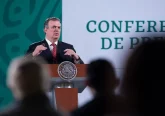 Patronage, which may be defined as a hierarchical relationship based on mutual obligations, is often regarded today as an unwelcome anachronism. Although this volume resists any single definition, the word ‘patronage’ reminds us of feudal and slave-owning societies of the past, where a few enjoyed the rights of citizenship at the expense of the many. Liberal democracies in our world have no place for patrons or clients, we believe, because universal adult franchise makes everyone legally equal and sovereignty rests with the demos.
Patronage, which may be defined as a hierarchical relationship based on mutual obligations, is often regarded today as an unwelcome anachronism. Although this volume resists any single definition, the word ‘patronage’ reminds us of feudal and slave-owning societies of the past, where a few enjoyed the rights of citizenship at the expense of the many. Liberal democracies in our world have no place for patrons or clients, we believe, because universal adult franchise makes everyone legally equal and sovereignty rests with the demos.
Yet modern democratic societies face a peculiar paradox: they must elect representatives who enact laws and make policies even as they maintain the fiction that they are just like us. The paradox of modern democracy has little to do with the level of inequality in society. Neither is it specific to cultural contexts in which democracy appears to be compromised, even distorted, by patron-client relations. Patronage is everywhere, as this refreshing new volume argues, and its workings in India, the world’s most populous democracy, push us to think of citizenship as vertically differentiated or hierarchical.
There is a simple reason why the politics of patronage offends modern liberals. It strikes us as a perversion of a democratic ideal that treats all citizens, despite differences in income and wealth, as political equals. All are equally citizens in a democratic polity.
However noble this sounds, it is undoubtedly far from social reality. Representative democracy not only coexists with social hierarchies, but actively produces them. These hierarchies are not exactly ‘traditional’, as several contributors to this volume show. Indian voters elect representatives from amongst the most marginal and discriminated populations. Those from peasant and ex-untouchable castes are no less prone to patronage politics, as the chapters by Lucia Michelutti and Diane Mines show, than those from historically dominant groups in Indian society. Citizens, especially those from traditionally disadvantaged backgrounds, may relate personally to the leaders whom they vote to power. But, as we learn from the chapters by Anastasia Piliavsky, David Gilmartin, and Lisa Bjorkman, they are not so naïve as to believe that these leaders are their political equals.
Ward Berenschot’s chapter illustrates how a host of political brokers mediate patronage relations as they aspire to move up the ladder of democratic politics. During elections that arrive with the regularity of festivals in a multi-tier democracy, politicians are supplicants vying for voters’ affections and loyalties. Prospective voters expect to be, and are, pampered with gifts by contending politicians. Thereafter, the roles are reversed. Citizens become clients of kingly patrons in whom they have reposed their trust. They seek the help of patrons they voted to power in order to get things done. Patrons are typically beset by a welter of demands from below, at least some of which stand at odds with each other. If they fail to meet the bulk of these demands, they are likely to be cast away and deprived of power in future. As all errant and greedy patrons know, citizens are only too eager to shuffle patrons in a mass democracy such as India’s. The poorest and humblest patrons may amass fortunes in office, Pamela Price argues in her chapter, but as long as they cater to the well-being of their clients, they can legitimately hold on to their spoils.
Democracy simply means that the demos can choose those who rule over them, and liberalism, as its founding fathers recognized, warrants little more than the protection of citizens’ rights and freedoms. Neither democracy nor liberalism is incompatible with social hierarchy. Indeed, they may actively define modern forms of hierarchy.
It would be a mistake to regard South Asia or the rest of the postcolonial world as deviations from North Atlantic norms. Democratic participation, whether in the form of votes or protests, is far more extensive in India today than in the United States or Germany. As Piliavsky writes in her excellent introduction to this volume, the poor in South Asia are far more politically engaged and informed than their better-off peers. Citizens in South Asian democracies deliberate publicly about their own well-being as well as the common good. They express themselves politically via an impressive range of media and a dazzling array of languages. Yet they are nested within, and remake, hierarchies that define democracy.
If democratic life in South Asia looks different from its Euro-American counterparts, then the explanation, I suggest, is more political than cultural. Patronage in European or North American democracies binds an impersonal state to its citizens, roughly half of whom, particularly the poor and marginalized in society, do not feel compelled to vote. If partisan differences have usually been ideological in these democracies, it is because they vigorously suppress class conflict and lack the ethnoreligious heterogeneity of the postcolonial world. Undoubtedly, the poor have far less say in politics and society there than in South Asia. As such, we have hardly any reason to suppose that these older democracies are necessarily more democratic than those in postcolonial South Asia.
The democratic politics of patronage and the social hierarchies on which it rests are not, of course, unalloyed blessings. Even if today’s hierarchies do not derive wholly from ‘tradition’, David Seyfort Ruegg, Hildegard Diemberger, and Sumit Guha remind us that these hierarchies do have historical antecedents in the patronage structures of monastic orders, imperial kingdoms, and patrimonial bureaucracies. They may embody, even perpetuate, caste and class differences in South Asian society, as Mattison Mines and Nicolas Martin demonstrate. They may also politicize the law and its policing, Beatrice Jauregui suggests, to the extent that patronage relations may come to rely on extralegal violence and even criminality of the kind that Arild Ruud discusses. Patronage networks may facilitate social mobility and the accumulation of wealth for some, Filippo Osella shows, but they may also abuse others and/or render them powerless. Much like humankind’s other earthly creations, patronage, too, is inevitably flawed. Patronage ties and networks are inescapably political, and hence, they pose a significant challenge to those who seek transcendence in ideological utopias. Yet utopia is, literally, no place at all. Academics, whose own fortunes and lives are encased in the politics of patronage, are better placed than most others to appreciate that fact.
Anastasia Piliavsky (ed.), Patronage as Politics in South Asia. New Delhi, New York, and Cambridge: Cambridge University Press, 2014, 484 pages, ISBN 978-1-107-05608-4 (hardback, $120).
This post is part of our Sociology of Citizenship series, hosted in partnership with Oxford’s Department of International Development.






No Comment